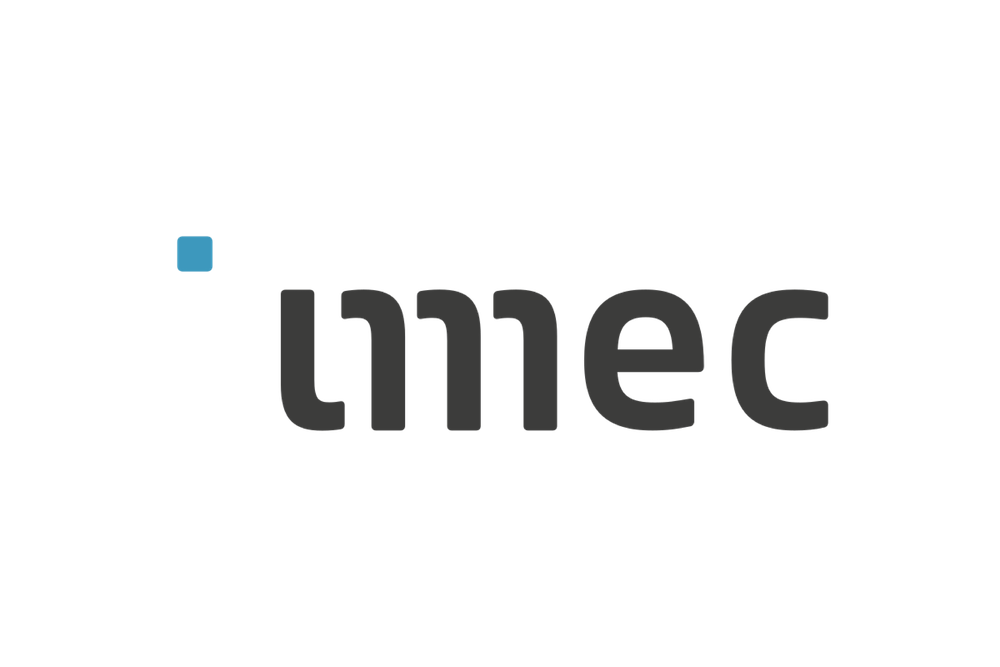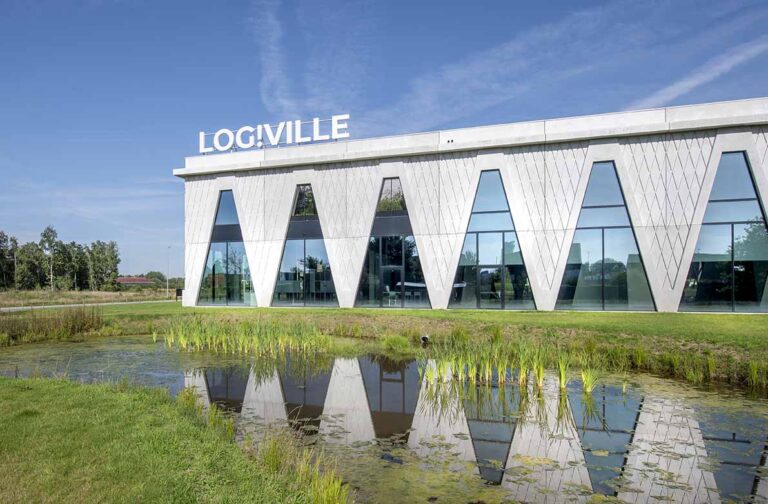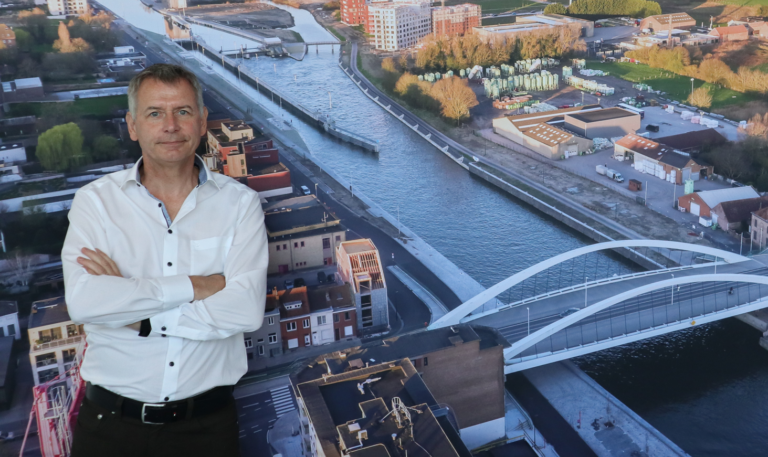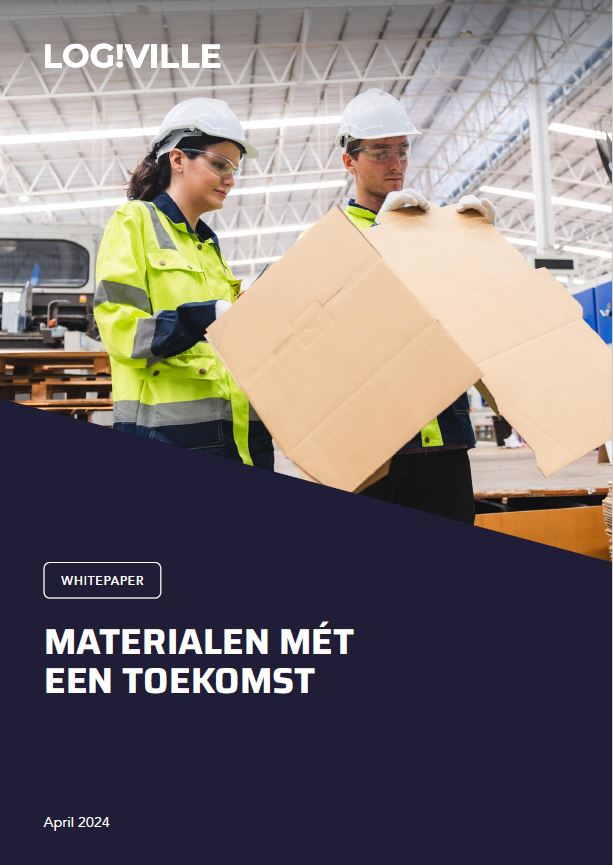Dries Van Bever (imec): ‘Providing solutions for wicked problems in logistics’

Imec is now much more than a world-famous developer of microchips and nanotechnology. Thanks to the various R&D hubs, it is now also a Flemish innovation motor. Imec, a supporting partner of Log!Ville, helps and guides governments and businesses in their digital transformations. It does this by investigating solutions for complex challenges which require a multidisciplinary approach, or so-called ‘wicked problems’. Dries Van Bever, Business Analyst Mobility & Logistics for imec, provides further information.
Imec began in Leuven in 1984 as a super-lab for research and development in microelectronics. The effort and complexity that go hand-in-hand with improving computer chips has now grown exponentially with the emergence of big data, artificial intelligence and Internet of Things. Throughout this evolution, imec has developed from a laboratory that supports industry into an R&D hub that is creating its global ecosystem for technology and electronics.
In 2016, imec merged with iMinds, a Strategic Research Centre (SRC) which specialises in digital technology and applications. With their input and several existing programs, imec further expanded its support to businesses. As a result, aside from the main activities relating to microchips, a few departments were initiated or taken to a higher level, including imec.icon (customised, demand-driven technology development), imec.istart (supporting start-ups and scale-ups), and the imec-team with its expertise in digital transformation.
Dries Van Bever: ‘At imec, we support the digital transformation within Flemish cities and municipalities, ports, logistics ecosystems and businesses via public/private partnerships. In this context, we are investigating various fields of application, including sustainability, health, mobility, logistics, energy, education, and much more.’
Wicked problems
Imec plays a prominent role in realising a social and economic impact in Flanders by conducting demand-driven research. This takes place in collaboration with governments, other imec divisions, research institutions, businesses and similar institutions. ‘Our mission targets the development of solutions for wicked problems, or the massive challenges facing society that require a multidisciplinary approach. This implies that a specific decision in one area could have an enormous impact on another area or on another target group. That is why we gather and process great amounts of information and data, which offer deeper insights into all segments and for all the parties concerned,’ he adds.
A typical example of logistics is the collaboration around synchromodality. A modal shift from truck transport on the roads to the railways and inland waterways could help to resolve the congestion on our roads but requires increased data exchange between parties in the logistics chain, who do not necessarily have a contractual connection. Although the parties gain advantages from sharing this information, this type of exchange is still quite rare. That is why we have numerous projects on the go at imec, tackling this particular issue.
Three core competencies
‘In order to find smart solutions for these complex challenges and wicked problems, the team focuses its expertise on mobility and logistics within three core competencies: Artificial Intelligence (AI), digital twins and ‘data spaces’. We use these to realise projects for both the government and businesses,’ Dries Van Bever explains.
These projects are located in domains such as urban logistics, ports and connections across the hinterland. A good example of this type of project would be PIONEERS. This Horizon 2020 project is researching the feasibility of increasing sustainability in ports and reducing their CO2 emissions. Within the consortium, imec is working on a digital twin that helps to improve decision-making on operational port processes, to reduce emissions. Another example is the SYTADEL project, within which the Flemish logistics sector is investigating opportunities about data space for encouraging multimodal transport. Another project, which is taking place together with VIL, is the continuous development of the Dynamic Access Control concept, which aims to break through the data silos between city services and logistics players.
Data spaces and digital twins
According to Dries Van Bever, as a result of its complexity, the logistics domain will become increasingly important in relation to solutions that will emerge in the near future. ‘By supplying a digital twin with huge quantities of data, we can move away from decisions made based on evaluations or gut feeling and base the decision-making process on simulations with genuine information. Much of the data for this type of application is sensitive due to privacy or commercial interests. This is where data spaces can play an important role because they enable the secure exchange of data.’
Data space is a solution for exchanging personal and non-personal data among different parties securely and in a decentralised manner. It is governed by a set of rules and standards concerning exchanging information and stakeholders can make use of the data that is provided by the community as long as they abide by these rules.
The importance of Log!Ville
The market is evolving rapidly and gathering the right information is vital. ‘Connections with companies, technology developers and start-ups are also extremely important. Log!Ville offers us the chance to further expand our network and better understand the needs of both businesses and governments. At Log!Ville, we are trying to realise this exchange and cross-pollination,’ he adds.




